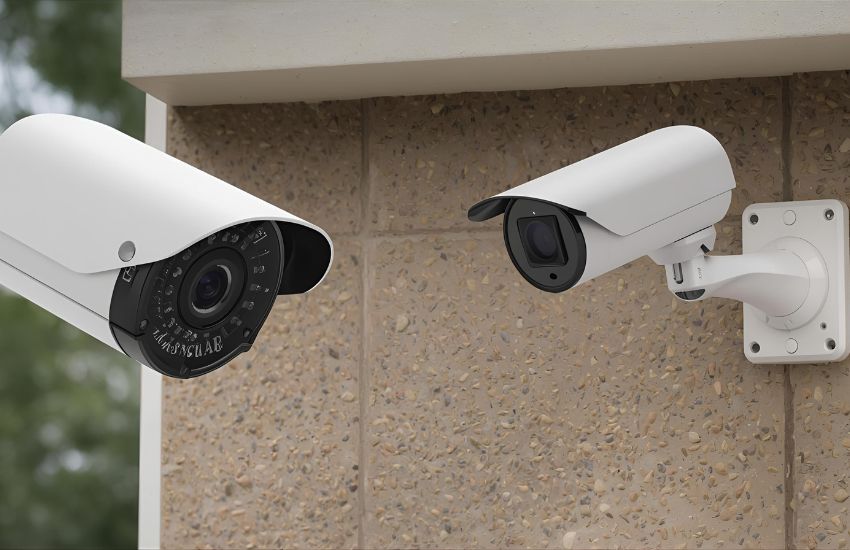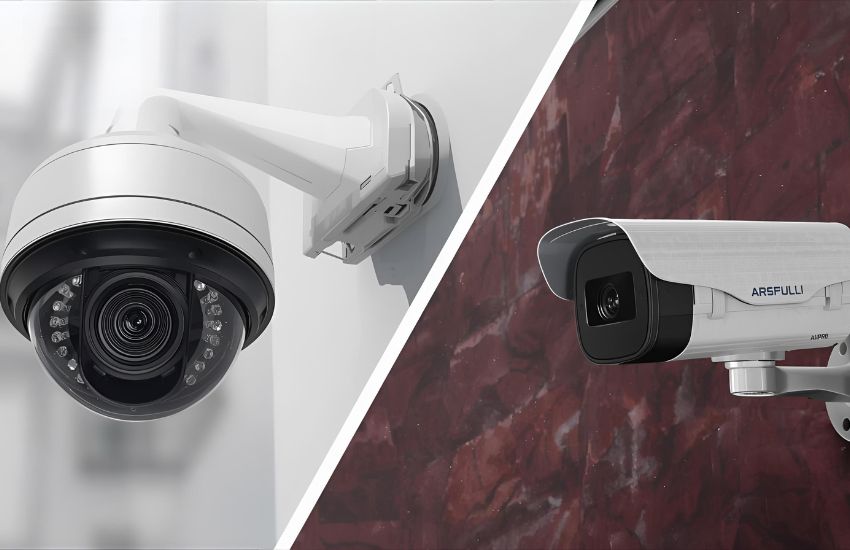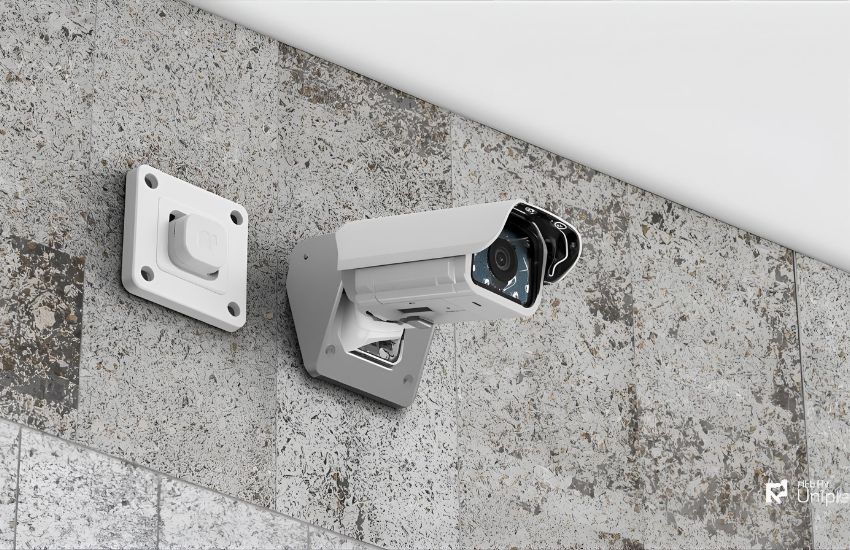Security systems play a crucial role in safeguarding your property, but choosing the right type can be challenging. The key differences between DVR and NVR security systems often confuse many because both record and store video footage yet operate using distinct technologies. A DVR system typically processes video data from analog security cameras transmitted through coaxial cables, while an NVR system manages digital video from IP cameras connected via Ethernet cables or wireless networks. Understanding these differences is essential for selecting a solution tailored to your specific security needs.
DVR (Digital Video Recorder) systems process analog camera signals and store data at the recorder, while NVR (Network Video Recorder) systems work with IP cameras that send digital data directly to the recorder or cloud. DVRs typically use coaxial cables, whereas NVRs use Ethernet cables, offering better video quality and easier installation.
Understanding the DVR System: Pros and Cons for Security Systems

What is a DVR Security System?
DVR security systems are a traditional form of video surveillance system that connect analog camera types directly to the recorder using coaxial cables. DVR systems typically process and store video data at the recorder, meaning every camera transmits raw video signals via the cable to a central location. This setup is known for its reliability and simplicity, making it a common choice for many security needs.
The Main Difference Between DVR and NVR Systems
The biggest difference between DVR and NVR security systems lies in how video data is handled. While DVR recorders process video data at the recorder, NVR systems process video at the camera itself, transmitting digital data over Ethernet cables or wireless connections to the network video recorder. Compared to DVR systems, NVR systems offer more flexibility with camera placement and better scalability.
Should You Choose a DVR System?
If your security needs prioritize a cost-effective, reliable solution with straightforward installation, DVR security systems remain a solid option. However, if you require advanced camera types, wireless connectivity, or enhanced video quality, exploring NVR and DVR systems together will help you make an informed decision tailored to your environment.
See more about…Lorex NVR IP Cameras
Exploring the NVR System: Benefits of a Modern Security Solution

How NVR Systems Process Video Data
In the ongoing discussion of DVR vs NVR, it’s important to understand that NVR systems process video data differently. Unlike DVR systems, which handle video processing at the recorder level, NVR systems rely on hardware on IP cameras to process and encode video before transmitting data over a network. This means that cameras transmit digital video footage via Ethernet cables or wireless connections, eliminating the need for coaxial cables commonly used in DVR setups.
Advantages in Camera Placement and Flexibility
One of the key benefits you’ll notice with an NVR system is its flexibility in camera placement. Since cameras transmit data over a network, you are not constrained by physical cabling limitations, allowing you to install cameras in locations best suited for comprehensive coverage. This flexibility makes NVR systems especially suitable for complex or large-scale security setups where strategic camera placement is essential.
Features and Management Benefits
NVR systems offer advanced features not typically available in DVR security systems. Many NVR setups support a higher number of cameras and include multiple audio input ports for enhanced surveillance capabilities. Additionally, these systems offer intelligent video analytics, helping you monitor activity more effectively. Managing your video surveillance system is also more straightforward, as NVR systems can be set up and managed remotely, providing convenience when storing and viewing the footage.
Choosing an NVR system means investing in a modern, scalable, and efficient security solution that meets evolving security needs while offering ease of use and advanced functionality.
See more about...Mac Security Camera / DVR
DVR vs NVR Security Systems: Key Differences and What Works Best

When considering security systems, many ask, what’s the difference between DVR and NVR setups? Understanding this distinction is crucial because it directly impacts your surveillance effectiveness and installation flexibility. DVR systems connect analog cameras via a coaxial cable and rely on the recorder to encode and process all video data. In contrast, NVR isn’t just an upgraded version of DVR; it functions differently. The NVR system doesn’t process video data at the recorder level. Instead, IP cameras are capable of processing and encoding video before sending it over the network to the recorder.
It’s important to note that analog cameras used with DVR systems don’t natively transmit digital data, which is why they require a coaxial connection. DVRs may have an added RCA connection for audio input, but their primary role remains centered on managing video from analog sources. NVR systems, by contrast, work with cameras that encode and process data independently, offering more flexibility with camera placement and network use.
When deciding between these two, you should make an informed decision based on your security needs, infrastructure, and desired features. While DVRs can be reliable and cost-effective, NVR systems often provide more advanced options and scalability, making them suitable for top-of-the-line security solutions. Understanding what’s the difference between these systems ensures you choose the right technology to protect your property effectively.
See more about…Security Camera App: DVR
Conclusion
In conclusion, understanding the distinctions between DVR and NVR systems is essential for choosing the right security solution. DVR systems are typically associated with analog cameras, often known as CCTV cameras, where every camera transmits analog signals and all data is processed at the recorder. In contrast, an NVR system may rely on IP cameras, which are typically equipped with hardware on IP cameras that encode and process video data at the camera itself before sending it to the recorder. This fundamental difference means that DVR vs NVR systems process video data differently, impacting installation, scalability, and functionality.
Additionally, the number of audio input ports and the way systems process audio and video data also vary between the two. While DVR systems process all data at the recorder, NVR systems distribute this workload, allowing for more advanced features and greater flexibility. By understanding how every camera in these systems operates and processes data, you can make an informed decision that best suits your security needs.
See more about…Security DVR
Frequently Asked Questions (Key Differences Between DVR and NVR Security Systems)
What is the main difference between NVR and DVR?
The main difference between NVR (Network Video Recorder) and DVR (Digital Video Recorder) lies in how they process video data. NVRs work with IP cameras and record digital video directly from the network, offering higher quality and flexibility. DVRs work with analog cameras, processing video signals through coaxial cables, making them simpler but less advanced.
What is the disadvantage of NVR?
The main disadvantage of an NVR (Network Video Recorder) is its dependency on network stability. If the network fails, video recording or remote viewing may be interrupted. NVR systems also tend to be more expensive than DVRs and require IP cameras and network setup, which can increase installation complexity and maintenance costs.
Is DVR cheaper than NVR?
Yes, DVR systems are generally cheaper than NVR systems. DVRs use analog cameras and coaxial cables, which cost less compared to IP cameras and Ethernet cables used in NVR setups. While DVRs are more affordable and easier to install, NVRs offer better image quality, flexibility, and remote access, making them more expensive overall.
Is NVR sharper than DVR?
Yes, NVR systems generally provide sharper and higher-quality video than DVRs. NVRs use IP cameras that capture digital signals directly, resulting in clearer images, better resolution, and enhanced detail. In contrast, DVRs rely on analog cameras that convert video to digital, which can reduce sharpness and overall image quality during transmission and recording.
